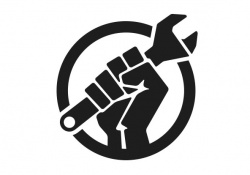Difference between revisions of "Electronics Right to Repair"
| Line 8: | Line 8: | ||
== Current challenges to repairing electronic devices == | == Current challenges to repairing electronic devices == | ||
| − | In this report, the FTC uncovers several issues regarding the accessibility of repair, including: | + | == Right to Repair in the United States == |
| + | |||
| + | === State legislation === | ||
| + | |||
| + | Right-to-repair legislations that apply to electronic devices have been proposed in various U.S. states. | ||
| + | |||
| + | === Federal Trade Commission (FTC) === | ||
| + | |||
| + | In 2019, the Federal Trade Commission (FTC) authored a report on electronics device manufacturers' restrictions of repair, titled "Nixing the Fix." In this report, the FTC uncovers several issues regarding the accessibility of repair, including: | ||
* Applying excessive amounts of adhesives, which makes it difficult to disassemble devices. | * Applying excessive amounts of adhesives, which makes it difficult to disassemble devices. | ||
| Line 17: | Line 25: | ||
* Using Digital Rights Management (DRM), technical protection mechanisms (TPM), and other forms of software restrictions. | * Using Digital Rights Management (DRM), technical protection mechanisms (TPM), and other forms of software restrictions. | ||
| − | Such issues create hardships for consumers of electronic devices, and the burden is borne heavily by low-income families and small businesses. As a result | + | Such issues create hardships for consumers of electronic devices, and the burden is borne heavily by low-income families and small businesses. As a result, the FTC is in favor of competition in repair services and supporting independent repair. Providing more choices in repair can enable timely and economic repairs, reduce e-waste, and provide opportunities for entrepreneurs and local businesses<ref>https://www.ftc.gov/system/files/documents/public_statements/1592330/p194400repairrestrictionspolicystatement.pdf</ref>. |
| − | + | ||
| − | + | ||
| − | + | ||
| − | + | ||
| − | + | ||
| − | + | ||
| − | + | ||
| − | + | ||
| − | + | ||
| − | + | ||
== Ethical concerns == | == Ethical concerns == | ||
Revision as of 20:24, 19 January 2023
Electronics Right to Repair is a movement that aims to provide consumers sensible and economical means to repair their electronic devices. While consumers currently have the right to repair their devices, consumers and independent repair technicians often struggle to do so due to their inability to access replacement parts, service manuals, and diagnostics tools. In addition, some manufacturers, such as Apple and Samsung, imposes software barriers that may limit the functionality of devices with replaced hardware components[1].
Manufacturers usually claim that "unauthorized" repairs done by independent repair providers may violate copyright laws and their rights to their proprietary software and hardware components. However, such claims are rarely grounded in law, as manufacturers typically do not have rights to control property sold to consumers beyond the sale. In December 2016, the U.S. Copyright Office (USCO) concluded that U.S. copyright laws do not restrict the repair of devices, and that repair does not constitute an infringement of copyright laws. [2].
Contents
Current challenges to repairing electronic devices
Right to Repair in the United States
State legislation
Right-to-repair legislations that apply to electronic devices have been proposed in various U.S. states.
Federal Trade Commission (FTC)
In 2019, the Federal Trade Commission (FTC) authored a report on electronics device manufacturers' restrictions of repair, titled "Nixing the Fix." In this report, the FTC uncovers several issues regarding the accessibility of repair, including:
- Applying excessive amounts of adhesives, which makes it difficult to disassemble devices.
- Limiting availability of parts, manuals, and diagnostics software to the manufacturers themselves and their global network of authorized repair providers.
- Restricting access to telemetry data, such as logs generated during the normal operation of devices.
- Unlawfully asserting patent rights and enforcing trademarks.
- Discouraging the use of non-OEM parts and independent repair services.
- Using Digital Rights Management (DRM), technical protection mechanisms (TPM), and other forms of software restrictions.
Such issues create hardships for consumers of electronic devices, and the burden is borne heavily by low-income families and small businesses. As a result, the FTC is in favor of competition in repair services and supporting independent repair. Providing more choices in repair can enable timely and economic repairs, reduce e-waste, and provide opportunities for entrepreneurs and local businesses[3].
Ethical concerns
Consumer protection
Environmental impact
Planned obsolescence
See also
References
- ↑ Purdy, Kevin · (October 28, 2019) · Here Are the Secret Repair Tools Apple Won’t Let You Have · work · iFixit · 01-19-2023
- ↑ lastname, firstname · (date) · The Repair Association · work · 01-19-2023
- ↑ https://www.ftc.gov/system/files/documents/public_statements/1592330/p194400repairrestrictionspolicystatement.pdf
